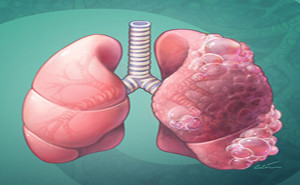Drugs-for-hypertension-anti-hypertensive
Management of hypertensionMany guidelines exist for the management of hypertension.
Most groups, including the JNC, the American Diabetes Associate (ADA), and the
American Heart Association/American Stroke Association (AHA/ASA) recommend
lifestyle modification as the first step in managing hypertension.Lifestyle modificationsJNC 7 recommendation...
The 2020 Global Hypertension Practice Guidelines were developed by the International Society of Hypertension (ISH) Guidelines Committee based on evidence criteria to be used globally. RemoveIn addition to BP control, the therapeutic strategy should include lifestyle changes, body weight control and the effective treatment of the other risk fac...
Effect of Initial Treatment with Quadpill vs Standard Dose Monotherapy in Patients with Hypertension
Circulation: AHA
Journals: Published
July, 2023Hypertension management remains suboptimal globally, with
treatment inertia being identified as one of the main barriers to achieving
blood pressure (BP) control. Simpler approaches to achieve target BP levels are
needed. TAKE-HOME MESSAGEThe QUARTET study examined the
effectiveness of a quadrupl...
The New England Journal of Medicine: Published on December, 2022Hypertension increases the risk of complications and death
from cardiovascular disease. Thiazide diuretics are first-line
antihypertensive agents that lower blood pressure and prevent adverse
cardiovascular outcomes. Early studies suggested that chlorthalidone was superior to
hydro...
JAMA Cardiology: Published on April, 2022TAKE-HOME MESSAGEQuestion: Is
low-dose triple combination antihypertensive therapy associated with greater
time at target blood pressure compared with usual care?Findings: This
secondary analysis of an open-label randomized controlled clinical trial
evaluated whether low-dose triple combination antihyp...
The LANCET: Diabetes &
Endocrinology: Published on July, 2022Diabetes is a major cause of death,
cardiovascular complications, and health-care burden worldwide.People with type 2 diabetes who
have high blood pressure are at an increased risk of morbidity and death from
major cardiovascular events.However, there are inadequate
randomised contro...
The 2021 WHO hypertension guideline
aims to provide the most current and relevant evidence based global public
health guidance on the initiation of treatment (with pharmacological agents)
for hypertension in adults. The recommendations target adult,
non-pregnant patients who were appropriately diagnosed with hypertension and counseled
about li...
Lung Function & the Risk of Exacerbation in Patients with COPD Treated With the β-Blocker Metoprolol
Annals of the American Thoracic Society: Published on October, 2022Chronic obstructive pulmonary disease (COPD) is a leading
cause of death worldwide [1, 2]. COPD exacerbations that are related to poor
prognosis and severe COPD exacerbations requiring hospital admission.Beta-adrenoceptor (β-ADR) antagonists, or “beta blockers,”
are indicated for...
The Lancet: Published on October, 2022Hypertension, or high blood
pressure, is a key risk factor for cardiovascular disease worldwide. Previous clinical trials supporting
the cardiovascular benefits of antihypertensive therapy primarily use
conventional morning dosing. Additionally, cardiovascular events
are temporally associated with the morni...
American Heart Association Journal: Published on February, 2021TAKE HOME MESSAGE:What Is New?To determine the impact of
differences in blood pressure between arms on cardiovascular outcomes (eg,
heart attack, death), data from over 57 000 individuals from 24 studies around
the world were collated into one large dataset and analyzed.Results sugge...
Stroke: A Journal of Cerebral Circulation: Published
on April, 2022High blood pressure (BP) is common
after ischemic stroke and associated with a poor functional outcome and
increased mortality. Reducing blood pressure (BP) is a
highly effective strategy for long-term stroke prevention. Despite
overwhelmingly clear evidence from randomized tri...
Hypertension is the most common
non-communicable disease, which persists as a major risk factor of
cardiovascular diseases such as stroke, myocardial Infarction, and heart
failure. Another major problem in clinical practice was the patients' adherence
to treatment, directly related to the number of hypertension pills to be taken.Thus, determini...













